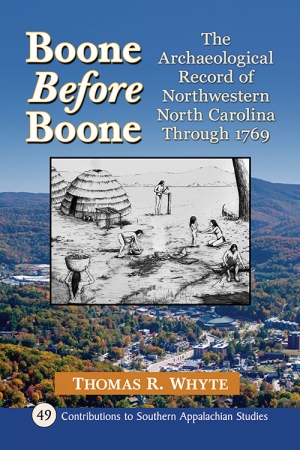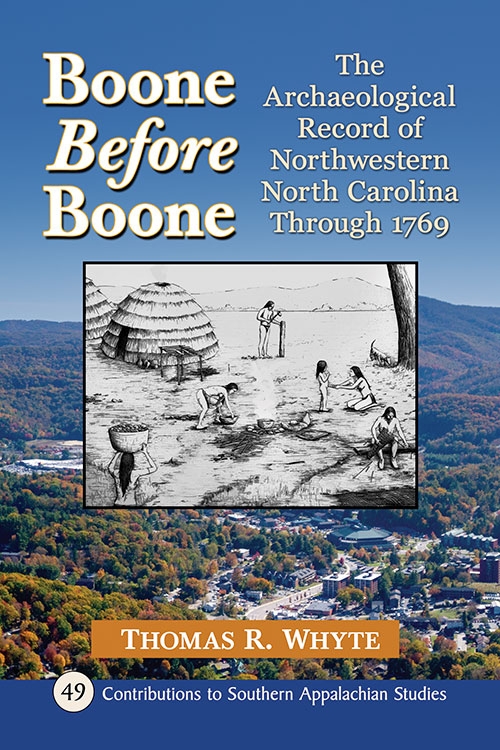 Dr. Thomas Whyte, Professor of Anthropology, has just published a new book on the history of Boone and Northwestern North Carolina, Boone Before Boone: The Archaeological Record of Northwestern North Carolina Through 1769 (2020 McFarland Press).
Dr. Thomas Whyte, Professor of Anthropology, has just published a new book on the history of Boone and Northwestern North Carolina, Boone Before Boone: The Archaeological Record of Northwestern North Carolina Through 1769 (2020 McFarland Press).
From the Press:
Native Americans have occupied the mountains of northwestern North Carolina for around 14,000 years. This book tells the story of their lives, adaptations, responses to climate change, and ultimately, the devastation brought on by encounters with Europeans. After a brief introduction to archaeology, the book covers each time period, chapter by chapter, beginning with the Paleoindian period in the Ice Age and ending with the arrival of Daniel Boone in 1769, with descriptions and interpretations of archaeological evidence for each time period. Each chapter begins with a fictional vignette to kindle the reader’s imaginings of ancient human life in the mountains, and includes descriptions and numerous images of sites and artifacts discovered in Boone, North Carolina and the surrounding region.
About the Department of Anthropology
The Department of Anthropology offers a comparative and holistic approach to the study of the human experience. The anthropological perspective provides a broad understanding of the origins as well as the meaning of physical and cultural diversity in the world – past, present and future. With nearly 200 undergraduate majors, the department offers numerous research opportunities for students including field schools, internships, lab projects and independent studies at home and abroad. Students may earn B.A. and B.S. degrees with concentrations in sociocultural anthropology, archaeology, biological anthropology, and social practice and sustainability. Learn more at http://anthro.appstate.edu
About the College of Arts and Sciences
The College of Arts and Sciences is home to 16 academic departments, two stand-alone academic programs, two centers and one residential college. These units span the humanities and the social, mathematical and natural sciences. The College of Arts and Sciences aims to develop a distinctive identity built upon our university's strengths, traditions and unique location. Our values lie not only in service to the university and local community, but through inspiring, training, educating and sustaining the development of our students as global citizens. There are approximately 5,850 student majors in the college. As the college is also largely responsible for implementing Appalachian's general education curriculum, it is heavily involved in the education of all students at the university, including those pursuing majors in other colleges. Learn more at http://cas.appstate.edu
About Appalachian State University
As the premier, public undergraduate institution in the state of North Carolina, Appalachian State University prepares students to lead purposeful lives as global citizens who understand and engage their responsibilities in creating a sustainable future for all. The Appalachian Experience promotes a spirit of inclusion that brings people together in inspiring ways to acquire and create knowledge, to grow holistically, to act with passion and determination, and to embrace diversity and difference. Located in the Blue Ridge Mountains, Appalachian is one of 17 campuses in the University of North Carolina System. Appalachian enrolls more than 19,000 students, has a low student-to-faculty ratio and offers more than 150 undergraduate and graduate majors.

